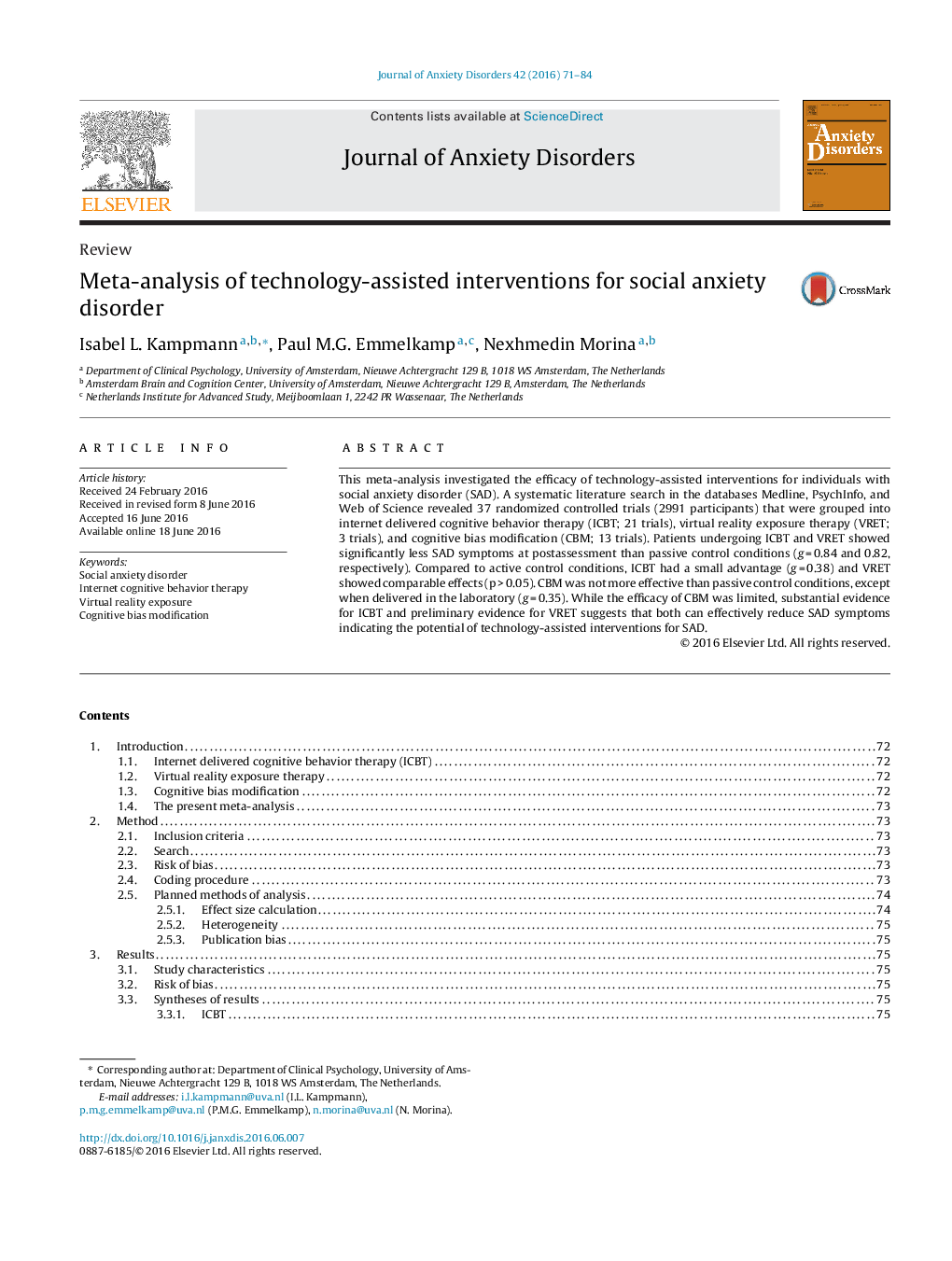| Article ID | Journal | Published Year | Pages | File Type |
|---|---|---|---|---|
| 7267061 | Journal of Anxiety Disorders | 2016 | 14 Pages |
Abstract
This meta-analysis investigated the efficacy of technology-assisted interventions for individuals with social anxiety disorder (SAD). A systematic literature search in the databases Medline, PsychInfo, and Web of Science revealed 37 randomized controlled trials (2991 participants) that were grouped into internet delivered cognitive behavior therapy (ICBT; 21 trials), virtual reality exposure therapy (VRET; 3 trials), and cognitive bias modification (CBM; 13 trials). Patients undergoing ICBT and VRET showed significantly less SAD symptoms at postassessment than passive control conditions (g = 0.84 and 0.82, respectively). Compared to active control conditions, ICBT had a small advantage (g = 0.38) and VRET showed comparable effects (p > 0.05). CBM was not more effective than passive control conditions, except when delivered in the laboratory (g = 0.35). While the efficacy of CBM was limited, substantial evidence for ICBT and preliminary evidence for VRET suggests that both can effectively reduce SAD symptoms indicating the potential of technology-assisted interventions for SAD.
Related Topics
Health Sciences
Medicine and Dentistry
Psychiatry and Mental Health
Authors
Isabel L. Kampmann, Paul M.G. Emmelkamp, Nexhmedin Morina,
